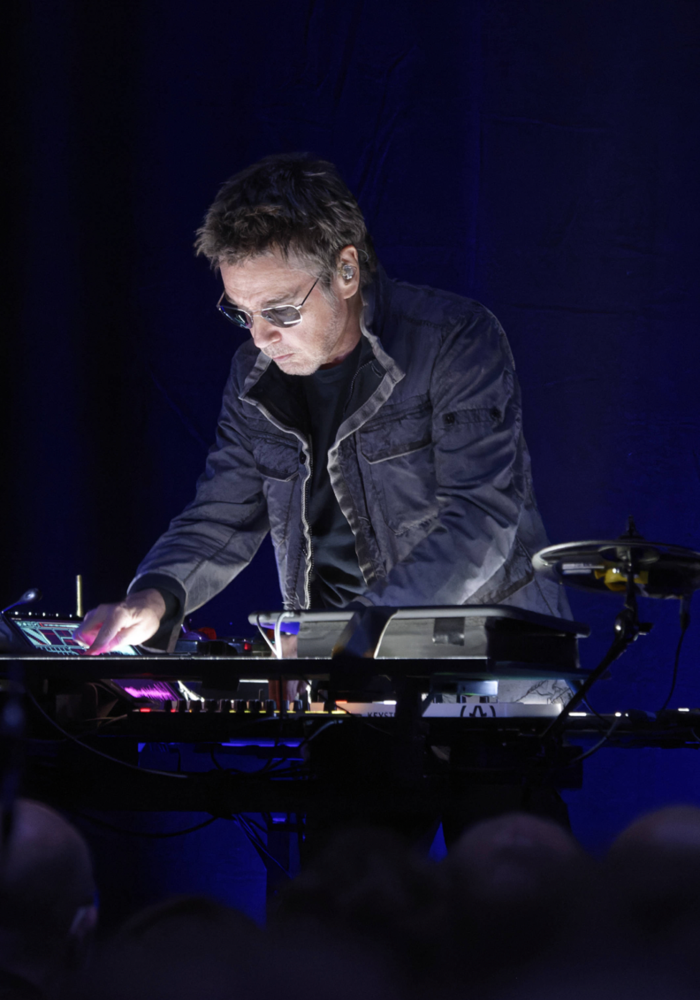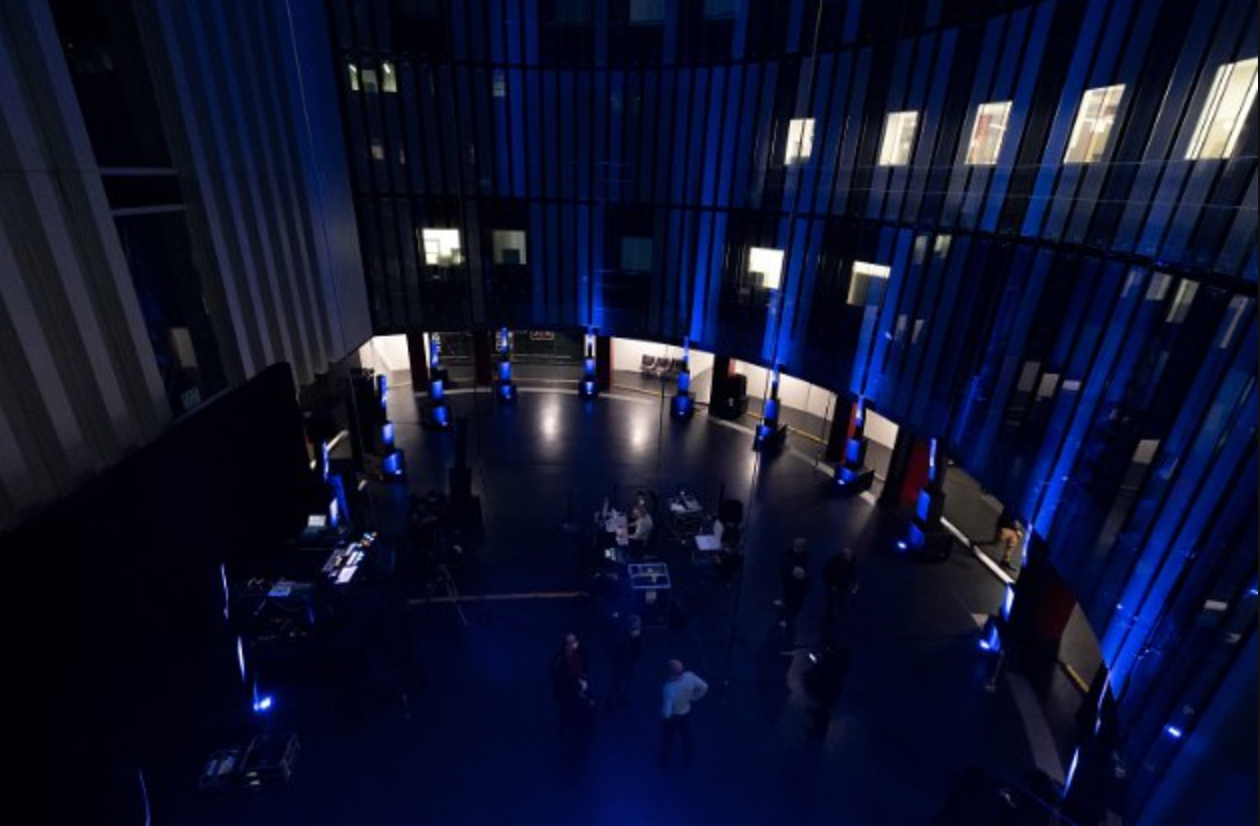Electronic music pioneer Jean-Michel Jarre recently performed Oxymore, his new show paying tribute to fellow electro icon Pierre Henry, in a series of headline sets at the first edition of Radio France’s innovative Hyper Weekend Festival in Paris.
Staged in the round at Radio France HQ, la Maison de la Radio, surrounded by a seated live audience while also being broadcast and live VR streamed to tens of thousands of viewers, the show featured L-Acoustics L-ISA technology, specified by sound design engineer, Hervé Déjardin, to deliver an immersive experience.
“I was involved with Jean-Michel Jarre’s epic virtual concert Welcome to the Other Side last year, during which Jean-Michel and I spent a lot of time discussing how to best present his compositions,” Déjardin explained. “We agreed that the most important thing is to compose for space, and having seen the technology available, he approached me several months ago with the newly completed Oxymore. We began work on a new show concept embracing the incredible immersive audio possibilities. Coincidentally around the same time, Radio France started to plan the exciting new Hyper Weekend festival, and happily the two projects came together.”
Déjardin brought previous experience of staging immersive concerts with L-ISA technology from his work with French electronic artist, Molécule, with whom he devised a concert series based around a 360-degree spatialised sound experience where the audience listens in the round in complete darkness.
“I was free to choose the system for the show, and naturally I opted for L-ISA,” said Déjardin. “This was the first time Jean-Michel had worked with the system but not the first time he’s worked in immersive. In the 1950s and 60s he was a student with composer Pierre Schaeffer, and in the 1990s and 2000s, he produced several DVDs using 5.1 but the technology just wasn’t ready. New technology over the past four or five years has given us the benefit of accuracy, and for me, L-Acoustics L-ISA has reached the pinnacle of that technology.”
Déjardin started his immersive mix using L-ISA Studio software with a 12-loudspeaker setup and a Nuendo DAW.
“Jean-Michel’s music is naturally spatial, and although he works in stereo, he thinks in terms of space,” he continued. “He organised different stems for me during the mastering process and sent me the multitracks so I could start the spatialisation design, which we spent two solid weeks finalising together. It’s so easy to work with him because the material is so logical. My job was just to reinforce the emotion and story in space.”


